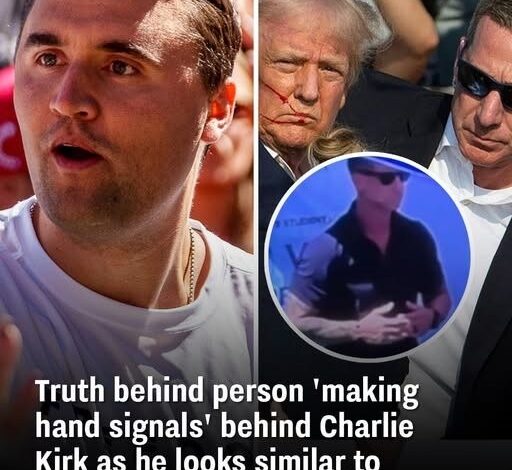
Charlie Kirk, the conservative commentator and founder of Turning Point USA, was assassinated during a public debate at Utah Valley University on September 10, 2025. The 31-year-old activist was struck in the neck by a bullet fired from a rooftop approximately 200 yards away. Despite immediate efforts by paramedics and law enforcement officers on scene, Kirk succumbed to his injuries less than two hours later.
The attack occurred in front of an estimated 3,000 people, most of them students and community members. Eyewitnesses described a sudden, chilling silence in the auditorium after the gunshot rang out. One student said that at first the audience thought it might have been a technical malfunction or loud noise from outside, until they saw Kirk slump in his chair, bleeding heavily. Panic then set in, with attendees dropping to the floor for cover before rushing toward exits. Several minor injuries were reported from the stampede as frightened spectators fled the venue.
Former President Donald Trump, who had long considered Kirk a political ally and personal friend, reacted within hours. In a lengthy post on his social media platform, Trump called Kirk a “legendary figure” and “an advocate of non-violence” who had dedicated his life to mobilizing young Americans around conservative values. Trump revealed that he had spoken directly with Kirk’s widow, Erika Frantzve, to offer condolences, and announced that Kirk would be posthumously awarded the Presidential Medal of Freedom, the nation’s highest civilian honor.
Trump also stated that a suspect had been detained after being turned in by an associate, though officials were quick to clarify that no charges had been filed at that point. The identity of the individual has not been released publicly.
The FBI, working alongside state and local agencies, has taken the lead on the investigation. According to federal officials, surveillance footage captured the suspected shooter fleeing the rooftop immediately after the attack. Investigators recovered shoe prints and a partial palm print at the scene, as well as what they believe to be the murder weapon: a high-powered bolt-action rifle found abandoned in a wooded area less than a mile from campus. Authorities have offered a $100,000 reward for information leading to an arrest, releasing images of a person of interest captured near the university on the day of the shooting.
In the hours following the assassination, speculation and conspiracy theories erupted across social media. A viral claim suggested that a man seen making hand signals behind Kirk during the event resembled a member of former President Trump’s Secret Service detail, fueling theories of government involvement. These claims were swiftly debunked. Officials confirmed the man in question was not a Secret Service agent but rather Kirk’s longtime personal security guard, who had been coordinating crowd control during the event.
Still, the confusion underscored the heightened distrust and polarization surrounding American politics. For many, Kirk’s killing has become another flashpoint in a nation already divided over issues of free speech, political extremism, and gun violence.
Questions have also been raised about the level of security provided for the event. Utah Valley University Police Chief Jeff Long admitted that only six officers were stationed in and around the auditorium that evening, a number he described as “clearly insufficient” in hindsight. Critics have called the lack of visible security a major failure of planning, particularly given Kirk’s controversial reputation and the 7,000-signature petition that had been circulated on campus opposing his appearance. Chief Long publicly apologized, calling the tragedy a “devastating breakdown in public safety.”
The assassination has reignited fierce debates nationwide. Supporters of stricter gun laws argue the killing is yet another example of the danger posed by high-powered firearms, while defenders of the Second Amendment echo Kirk’s own past remarks that armed citizenry is essential to protecting liberty, even if it comes with risks. Free speech advocates warn that political violence is threatening the ability of public figures to speak openly on contentious issues without fear for their lives.
Political leaders from across the spectrum have issued statements condemning the attack. Utah Governor Spencer Cox called Kirk’s murder a “heinous crime” and promised that state authorities would “pursue every lead until justice is served.” Vice President JD Vance urged Americans to “pray for Erika and the children, who have lost a husband and father in an unthinkable act of hatred.” President Joe Biden declared there is “no place in our country for this kind of violence,” while former President Barack Obama described the assassination as “a despicable act that threatens the democratic principle of open dialogue.”
International figures also reacted. UK Prime Minister Keir Starmer emphasized the need for societies to “allow debate without fear of assassination.” Italian Prime Minister Giorgia Meloni called the killing “an atrocious wound to democracy,” and Argentina’s President Javier Milei praised Kirk as “a staunch defender of Western values.”
Kirk’s death marks a dramatic and violent end to the career of a figure who thrived on confrontation and built a movement around his unyielding conservatism. For his supporters, he was a voice of courage and conviction. For his detractors, he was a lightning rod for division. But in the aftermath of his assassination, one fact is unavoidable: the murder of Charlie Kirk has become a defining moment in the national conversation about political violence, security, and the cost of polarization in America.